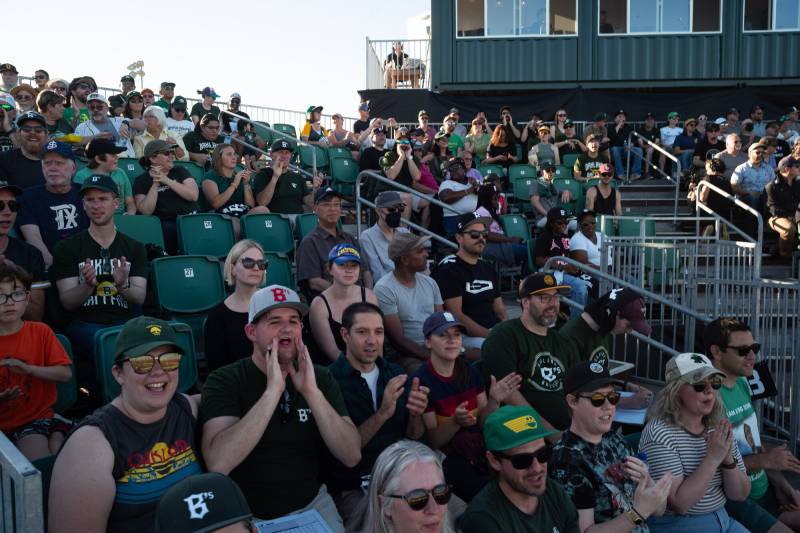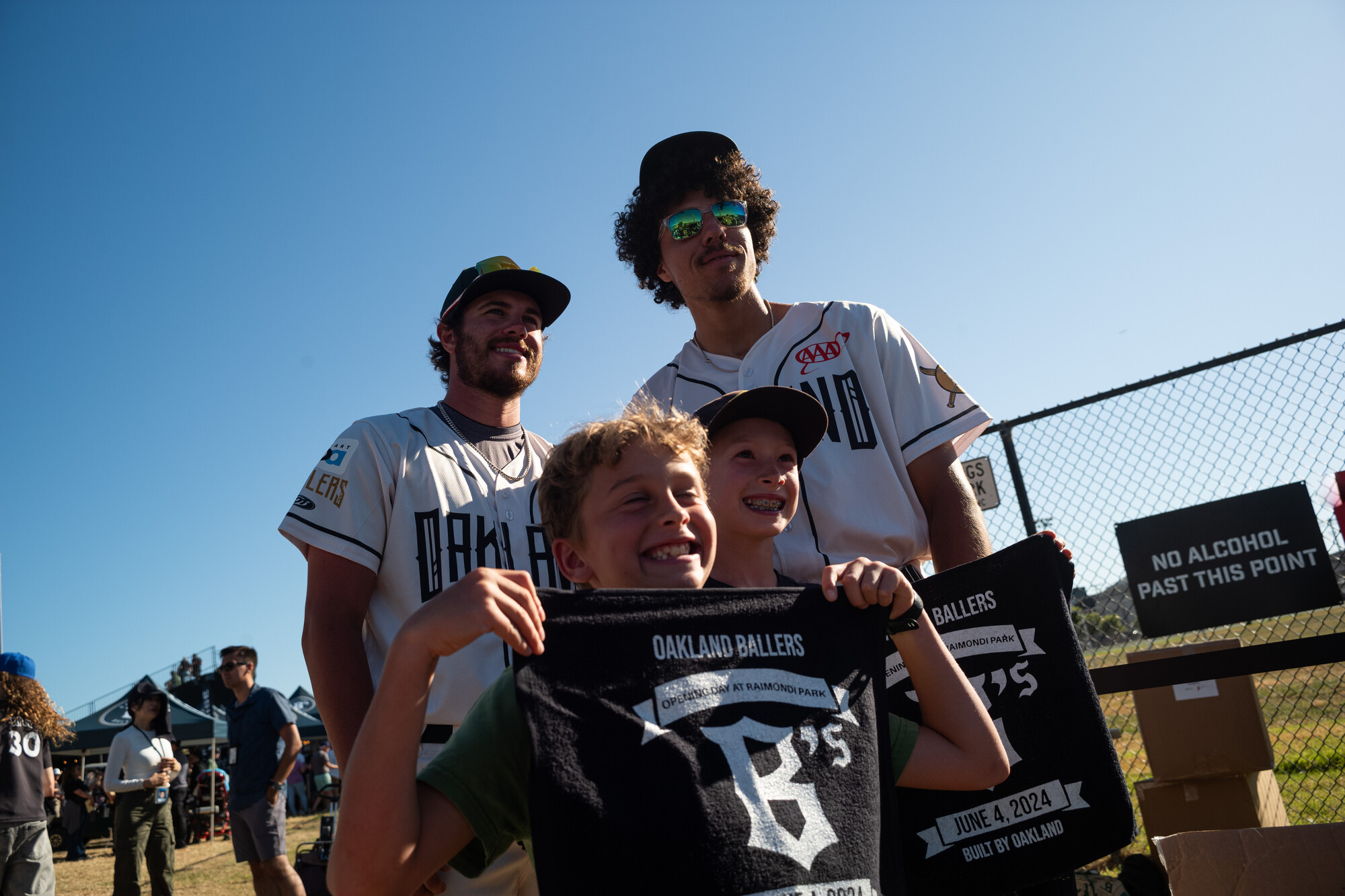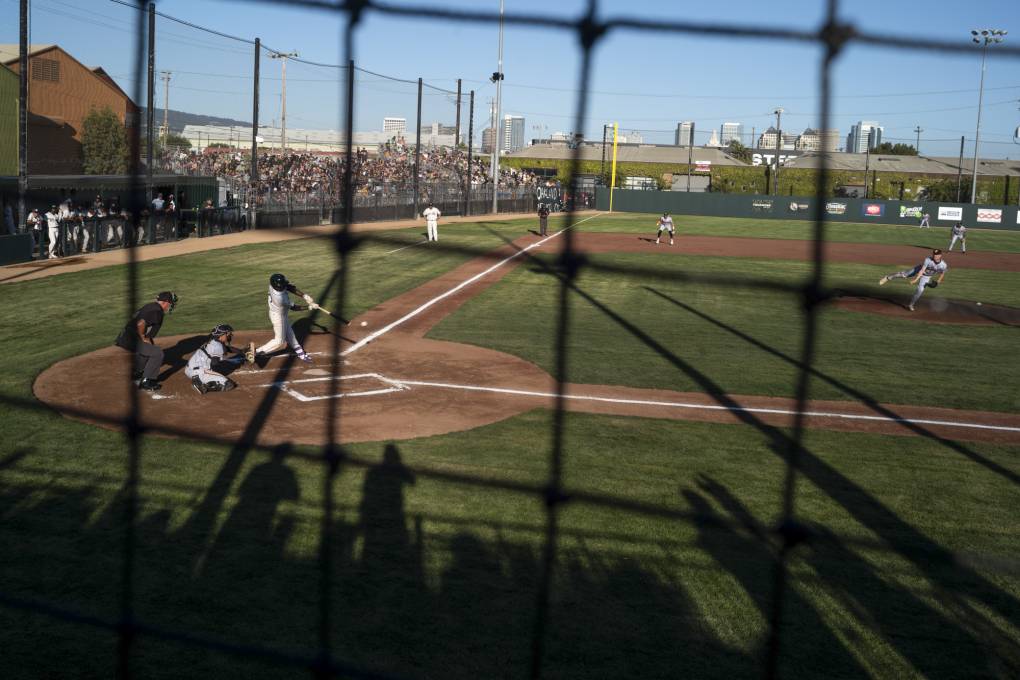Challenged on that point, Freedman noted Walter Haas Jr., the Levi’s heir and CEO who bought the A’s from Charlie Finley in 1980 and kept them in Oakland. Haas sold the team in 1995.
“We believe that a lot of the value of a team comes from the fans themselves, the energy that they produce,” Freedman said. “That’s what’s fun about the game is enjoying it with your community. Right? And so whether it’s ever been there or not, we believe this is a pathway to create a social contract between fans and their communities.”
As is customary in crowdfunding, the Ballers are also offering a series of perks to those who invest more than the minimum. Those include early access to team merchandise at the $200 investment level, discounted tickets for those who buy $500 in shares, and invitations to attend spring training for investors who pony up $25,000 or more.
The SEC filing that accompanied the share offering discloses how the team has been financed to date and lays out several financial challenges.
In joining the Pioneer League last year, Freedman and Ballers co-founder Bryan Carmel needed to start two new teams so the league could maintain an even number of teams and a balanced schedule.
The league’s fee for each of the new franchises — the Ballers and its sister team, the Yolo High Wheelers — was $1.75 million, according to the SEC document. The Ballers’ owners financed the Yolo franchise fee with a loan from the league at 10% interest. An $875,000 payment on that loan is due in November.
The filing also discloses that most of the teams’ expenses so far, including the estimated $1.6 million the Ballers paid to refurbish West Oakland’s Raimondi Park and erect a temporary stadium there, have been met with a $5 million loan from Freedman.
The Ballers have generated lots of social media buzz in their first year, a level of enthusiasm not strongly reflected in attendance to date. Though a just-concluded six-game homestand marked the team’s strongest attendance since opening night in June, the team has drawn an average of 1,820 to its 4,100-seat ballpark.
The team currently ranks eighth among 10 Pioneer League teams that are reporting attendance this year, mostly small-town franchises in Montana, Idaho, Colorado and Utah.



